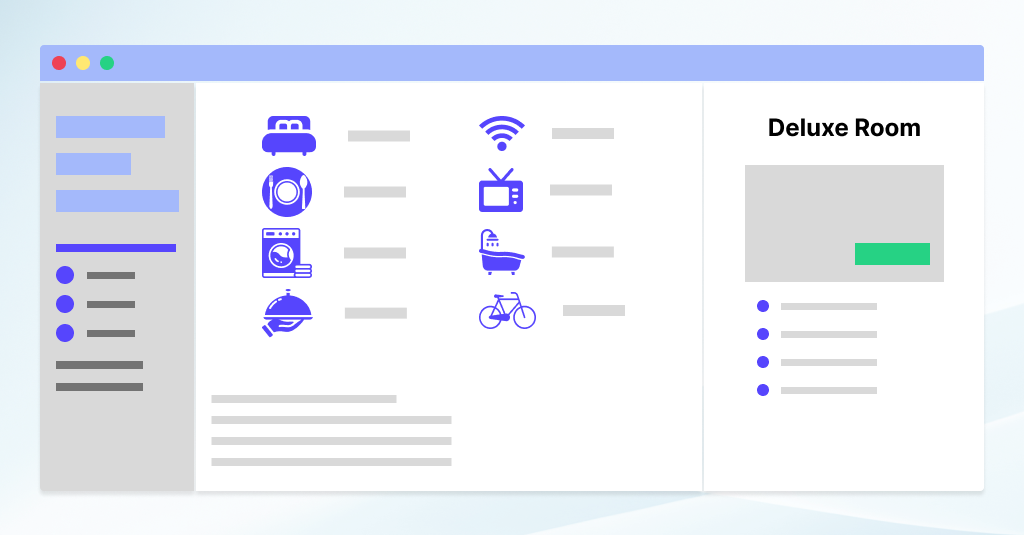What is Attribute-Based Selling (ABS)?
Attribute-Based Selling (ABS) in the travel industry is a strategy that focuses on offering and selling travel products based on specific attributes or features rather than traditional predefined packages. This approach allows travelers to customize and tailor their experiences by selecting individual attributes or components of a trip, such as room features, meal plans, activities, and more. Attribute-Based Selling aims to provide greater flexibility and personalization to meet the diverse preferences and needs of travelers.

Key Features of Attribute-Based Selling in the Travel Industry
Customization: Attribute-Based Selling allows travelers can personalize their trips by choosing specific attributes or features that align with their preferences. This could include room types, view preferences, bed configurations, meal plans, and other amenities.
Dynamic Packaging: Instead of offering fixed packages, travel providers allow customers to dynamically package their trips by selecting and combining various attributes, creating a tailor-made experience.
Transparency: ABS emphasizes transparency in the booking process, providing clear information about the individual attributes available for selection. This transparency helps travelers make informed decisions.
Enhanced Upselling: Travel providers can use Attribute-Based Selling as a strategy for upselling by offering additional features, upgrades, or amenities that align with a traveler’s preferences. This can lead to increased revenue per booking.
Technology Integration: Attribute-Based Selling often involves the integration of advanced technology, such as booking engines and reservation systems, to enable seamless selection and customization of attributes during the booking process.
Mobile Accessibility: Given the increasing use of mobile devices in travel planning, ABS platforms are designed to be mobile-friendly, allowing travelers to customize their experiences on smartphones and tablets.
Real-Time Inventory Management: To support Attribute-Based Selling, travel providers need real-time inventory management systems to ensure that the selected attributes are available and accurate at the time of booking.
Collaboration with Suppliers: Travel companies need to work closely with suppliers, including hotels, airlines, and activity providers, to ensure that a wide range of attributes is available for selection and that the information is accurate and up-to-date.
User Experience Design: Attribute-Based Selling platforms prioritize user-friendly interfaces and intuitive design to make the customization process easy and enjoyable for travelers.
Data Analytics: Utilizing data analytics to understand customer preferences and trends, helping travel providers refine their attribute offerings and enhance the overall customer experience.
Conclusion
Attribute-Based Selling is particularly relevant in the modern travel landscape, where consumers increasingly seek unique and personalized experiences. By adopting ABS strategies, travel companies can differentiate themselves in the market and cater to the evolving preferences of today’s travelers.







